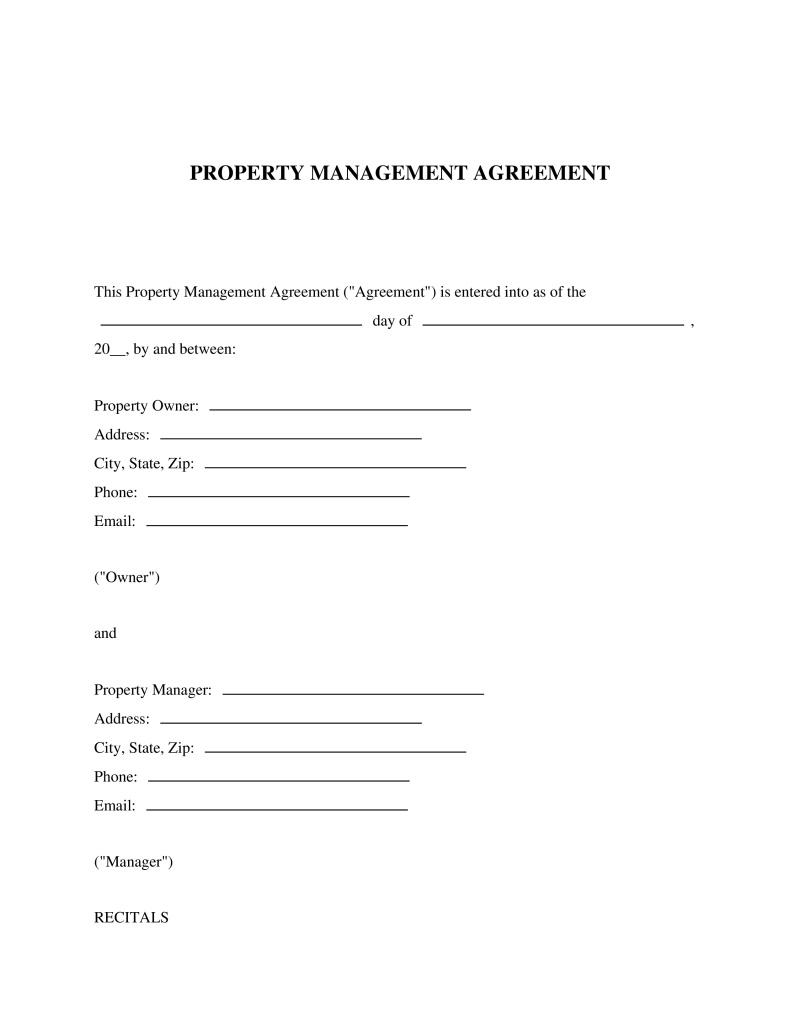A Property Management Agreement is a legally compliant contract that outlines the duties, fees, and terms between a property owner and a management company to ensure clear expectations and protect both parties.
Property Owner Name
Please provide the full legal name.

Table of Contents
What is a Property Management Agreement?
A Property Management Agreement is a legally binding document between a property owner and a management company or individual property manager. This agreement outlines the responsibilities, duties, and fees related to the management of the property, including tasks such as collecting rent, handling maintenance and repairs, and dealing with tenant issues. It serves as a comprehensive guide for both parties, ensuring clarity on expectations and procedures. Landlords or property owners who wish to delegate the day-to-day management tasks of their real estate investment would find this agreement indispensable. By formalizing the arrangement, it mitigates potential misunderstandings and disputes, providing a structured framework for the professional relationship.
Key Features
Important Provisions
- Scope of Management Services: A comprehensive list detailing all tasks the manager is responsible for performing.
- Financial Terms: Clear stipulations regarding management fees, expense handling, reserve funds, and financial reporting requirements.
- Liability and Indemnification: Clauses designed to limit each party's liability under certain circumstances while protecting against claims or damages arising from negligence or failure to perform duties as outlined.
- Term and Termination: Specifics on how long the agreement lasts and under what conditions either party can terminate it before its natural expiration date.
Pros and Cons
Pros
- +Utilizing this agreement can significantly reduce potential legal disputes by setting clear expectations from the onset.
- +It provides a professional structure for managing properties, which can enhance efficiency and effectiveness in operations.
- +The document ensures that all financial transactions and agreements are recorded in writing, minimizing misunderstandings.
- +Owners can enjoy peace of mind knowing their property is managed according to agreed-upon standards and legal requirements.
- +It offers flexibility and can be tailored to specific property needs or management styles.
Cons
- -Relying solely on a template without customization may not fully address unique aspects of your property or management needs.
- -There could be limitations if local laws have specific requirements not covered in the standard agreement template.
- -Without proper understanding or guidance, parties may misinterpret clauses leading to unintended obligations or rights.
Common Uses
- For landlords who wish to hire professionals to manage residential rental properties.
- When an investor owns commercial real estate and requires operational support from a management firm.
- In scenarios where property owners live far from their rental properties and need local management assistance.
- For real estate investors focusing on expanding their portfolio while delegating day-to-day management tasks.
- By homeowner associations (HOAs) seeking professional management for community common areas and facilities.
- In vacation rental arrangements where frequent turnover necessitates dedicated management services.
Frequently Asked Questions
Do you have a question about a Property Management Agreement?
Example questions:
Not the form you're looking for?
Try our legal document generator to create a custom document
Community Discussion
Share your experience and help others
Legal Notice: Comments are personal opinions and do not constitute legal advice. Always consult a qualified attorney for matters specific to your situation.
Comments (0)
Leave a Comment
No comments yet. Be the first to comment!